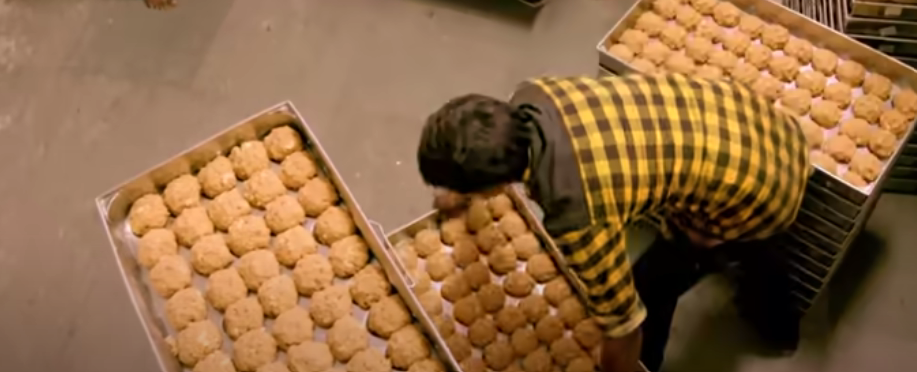https://www.tirumala.org/Reports from a central government lab have surfaced in a recent controversy that has generated a great deal of public interest, revealing frightening findings regarding the cow ghee used by the Tirumala Tirupati Devasthanam (TTD) to manufacture its renowned Tirupati Laddus. The ghee purchased for the cherished Prasadam distributed to pilgrims has been found to contain fish oil, beef tallow, and lard, according to laboratory testing carried out by the Centre for Analysis and Learning in Livestock & Food (CALF).
https://en.wikipedia.org/wiki/Tirumala_Tirupati_Devasthanams
The Claims and Counterclaims
Andhra Pradesh Chief Minister N. Chandrababu Naidu initially brought up the accusations at an NDA meeting, claiming that the YSRCP administration had used animal fats to make the famous Tirupati Laddus. The YSR Congress Party (YSRCP), which contends that such claims are irrational and politically driven, has angrily refuted this assertion.
TDP leaders revealed the results of the lab testing, noting that the ghee samples included animal fats and a variety of other oils in addition to cow ghee. The TDP spokesperson, Anam Venkata Ramana Reddy, stressed that these troubling results had been validated by the lab, which has been acknowledged by the federal government. He emphasized that the ghee procurement procedure, with its low ₹320 per kg offer, raises concerns over quality standards, implying that high-grade
Quality Concerns in Procurement
Reddy’s remarks brought attention to problems with TTD’s ghee procurement practices, claiming that contracts were given out in questionable ways and that the goods’ quality fell short of required requirements. He said that the absence of kickbacks caused the ghee suppliers to switch, which he said affected quality. Reddy also cited grievances over the laddus’s odor, casting doubt on TTD’s sourcing procedures even further.

YSRCP’s Defense
Leaders of the YSRCP, including as Rajya Sabha member Y.V. Subba Reddy, have disputed the accuracy of Naidu’s statements in response. Reddy sought documentation of the use of animal fat between 2019 and 2024 and threatened to sue for slander if it was not possible to produce it. He said that TTD has always made their Goshalas with unique ghee made from native cow breeds, highlighting their dedication to using high-quality, organic ingredients when preparing Prasadam.
Implications for Devotees and TTD
Devotees who visit the Tirumala temple are very troubled by the impact from these charges, especially in regards to the purity of the Prasadam they receive. To preserve credibility with the millions of pilgrims who depend on the sanctity of the sacrifices given in Lord Sri Venkateswara’s honor, TTD must openly address these concerns as the controversy rages.
Conclusion
The Tirupati Laddus controversy serves as a timely reminder of how crucial it is to source food with quality and honesty, especially when it comes to religious offerings. In light of the escalating political tensions, it is imperative that all stakeholders present unambiguous, verifiable proof in order to allay devotee fears and preserve the hallowed customs of the Tirumala temple.
Lorem ipsum dolor sit amet, consectetur adipiscing elit. Ut elit tellus, luctus nec ullamcorper mattis, pulvinar dapibus leo.